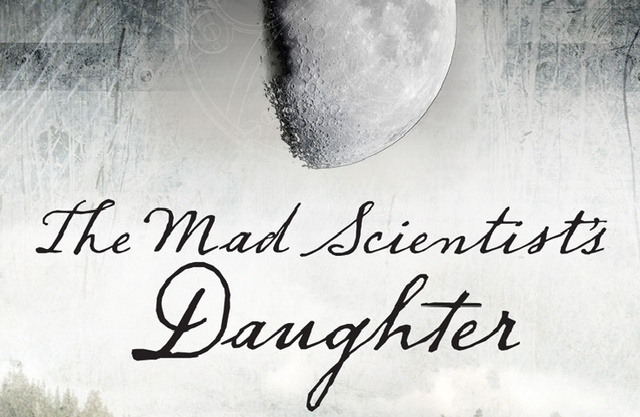 Quite simply, The Mad Scientist’s Daughter by Cassandra Rose Clarke is a love story. There is a hitch, however. There is a boy and a girl, but one of them is an android. For Caterina Novak, this isn’t an issue until it is. In this vaguely dystopian future, artificial intelligences are blamed from everything to The Disaster to stealing jobs to just being damn creepy. Robotics has swung away from mimicking humanity and androids are rare. None are quite like Finn, however.
Quite simply, The Mad Scientist’s Daughter by Cassandra Rose Clarke is a love story. There is a hitch, however. There is a boy and a girl, but one of them is an android. For Caterina Novak, this isn’t an issue until it is. In this vaguely dystopian future, artificial intelligences are blamed from everything to The Disaster to stealing jobs to just being damn creepy. Robotics has swung away from mimicking humanity and androids are rare. None are quite like Finn, however.
When Cat is five, her father brings home human-like robot named Finn. Cat thinks Finn is a ghost at first. He’s pale, like a shade, and not obviously alive, for all his human-like appearance. He has no smell and his movements and speech are slightly mechanical. In retrospect, the ghost analogy is really neat. It also makes perfect sense coming from the thoughts of a young child. I really enjoyed young Cat. A lot of her adventures evoked memories of my own childhood, except for the android part.
Finn becomes her tutor and then her friend. As Cat matures, he becomes more. Cat has difficulty defining that ‘more’. Her feelings for Finn seem like an aberration, in fact they are considered so by many of her peers. Though she would defend his right to be an autonomous being, she turns to him in times of need and counts him as her closest friend. She does not truly believe Finn feels the same way. It seemed obvious to me, as a reader, that he does feel the same way and that’s what makes this story so bittersweet and compelling.
I identified closely with Cat, particularly her apathy, which bordered on annoying. A main character is supposed to drive the action, right? Make the tough choices, be damned heroic. Most of us aren’t all that, however. We drift, victim of the tides. Cat allows life to carry her along and makes choices based on disinformation. She is detached and hopes engaging with other human beings will make her more normal. As the novel progresses, however, it only becomes more clear that she’s not.
While I often wanted to slap Cat, her apathetic nature felt very human, despite her struggles. I wondered if her detachment might be a conscious thing, if her close association with Finn had somehow programmed her to be different. Her dispassion echoes Finn’s, though their motivations differ. He feels he does not have the right to act. But when he does, decisively, it’s ironic. Finn, the second-class citizen, the one supposedly bound by programming, is the one to step away.
That was about the point where my heart actually tore in two. I’d sniffled a little earlier on and had tweeted my distress at Cassandra Clarke, who responded that she was sorry but not sorry. You know how it goes. I then read the rest of the book in one sitting, hoping for a happy ever after. Did I get one? You’ll have to read the book to find out. I will say The Mad Scientist’s Daughter wrecked me, emotionally, for the remainder of that day, but I’m the happy, sad, oh my God, I’m so tired sort of crier, so that’s not much of a hint, is it?
Oh and Ms. Clarke was not at all sympathetic to my plight when I was done. Typical author, I’d say, milking the tears of her readers. But a book that moves you is one you’ll remember and I’m not the only one who thinks so. The Mad Scientist’s Daughter has been nominated for the Philip K. Dick award. Well deserved, in my opinion.
Written for SFCrowsnest.

A wonderful review of one of my favorite reads of last year. And you are not alone in the shedding of tears.
Cat was annoying in her genuine humanity, which I think is one of the strong points of the narrative. We want to shake/slap her to get her to wake up and be proactive in her own life…yet we see ourselves and others exhibit the same behavior every day. Although very different, they way she was written reminds me of Richard in the novel Neverwhere, by Neil Gaiman. Without spoiling anything if you haven’t read it, Richard acts uncomfortably/annoyingly human for much of the novel and it always makes me want to shake him but also helps me identify with him too.
Cat’s uncomfortable humanity is definitely one of the strengths of the book, isn’t it? It’s a perfect contrast to what Finn is supposed to be.
I have not read Neverwhere. I’ll have to add it to my ever growing list. 🙂
Thanks for the comment!